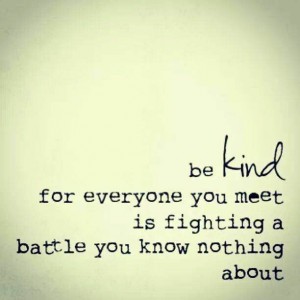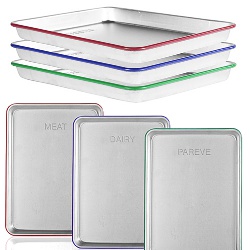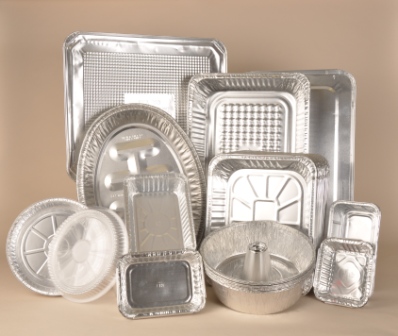Monthly Archives: August 2013
Dishing out opinions
The Alter of Novardok, Rabbi Yosef Yozel Hurwitz zt’l, taught that kosher utensils could be either meat, dairy, or parve, but a man cannot be pareve, he is only one way or the other. I have been thinking about this teaching for a good part of the summer (which is almost over since my kids started school this week).
Most of us have opinions. It’s part our personality. I, in my more colorful past, always had something to say about everything. Eventually as I got older, I curtailed my opinions on many social, political, religious, and community issues. In my more formative years of being frum I looked towards the middah of humility, anivus, as a crutch not to have such a strong opinion on things. This is completely the wrong way to behave. It was a mistake of my youth and one I regret. We all have opinions about things we are truly passionate about. It’s part of being created B’zelem Elokeim and emulating Hashem. Humility doesn’t mean you have to keep your mouth shut all of time.
“Man cannot be pareve,” say the Alter. We just can’t, because deep down inside us is a little voice giving an opinion. Those that claim to not have an opinion about things, really just don’t want to share their opinion with you or make it public. Not expressing your view is sometimes worse than voicing your opinion. Over the years I’ve seen relationships and friendships dissolve like sugar in a pot of boiling water because people try not to side with one party or the other. I have seen business deals destroyed, reputations soiled, and families torn asunder because people try not to take a side on an issue.
I am not advocating that we all need to make picket signs for every little cause we can think of, but it’s important to make known how you stand on an issue. This is especially true, I think, with your children. Children, as they grow up, need to understand the nuances of halacha, minhag, and hashkafa. They will only understand if they see us and the decisions we make. For example, if you don’t explain to your kids which hechsharim your family eats, then they might think that any hechshar is acceptable. I want my children to have opinions and know that it’s ok to speak up and defend someone. I want them to not be afraid to be in the minority about something they believe to be emes, the truth. I want them to follow the example of their parents, especially their mother. So, I guess that means that 5774 will be a year of finding a voice to express my opinion.
Free shiur of Rav Moshe Weinberger speaking at YU
Hey!! Just saw this on yutorah.org, Rav Weinberger the new Maspiah at YU/REITS. The shiur is titlled “Recognizing our Kochos” and you can get it here.
Loshon Hora in the age of social media
A common textbook example of Loshon Hora, the Torah prohibition about speaking despairingly about someone, is the visualization of someone cutting open a pillow and then trying to collect all of the feathers as they blow away. With the ease of distributing information thanks to Facebook, Twitter, and Instagram this illustration of a pillow is almost outdated.
While it’s probably faster to use social media to “speak” Loshon Hora, the medium of choice is still talking to someone to old fashion way. It’s much more juicy and enticing to simply pick up a phone or tell a friend some “news” while you are waiting to pick up your kids from camp or waiting in line for some kugel at a kiddush. Why? Because we still like to have actual conversations with other people.
You can PM (private message) your friend to tell them what you just heard about so-and-so, but typing the actual words isn’t a worthy substitute for speaking the words. It’s like the difference between reading about a great meal and actually smelling and tasting the meal. The object, be it a 5-course meal or insider news about someone in your community, can’t fully be replicated if it is transmitted by the written word. Go ahead try it. Go to Twitter or Facebook and write some Loshon Hora about someone. Don’t press SEND, please. Just look at the words and imagine saying them. It’s a different feeling.
Of course, I am not suggesting or advocating Loshon Hora is an acceptable thing to do. It isn’t. That being said, I am guessing that most people (not that they will ever read this) wouldn’t use social media to spread gossip about someone’s daughter, spouse, mother-in-law, school administrator, or doctor. The reason they would’t use Twitter or Facebook is because once it’s out there (unless you SEND and then DELETE right away) it can be traced back to the originator. With Loshon Hora of the spoken variety, as the originator you can always say, “I don’t remember who told me,” or, “I really can’t reveal my source, because it would be Loshon Hora.”
The bottom line is that talking about other people is hurtful, regardless of if it is the truth, half-truth, or completely untrue. Negative words about someone have the power to follow someone for years and also can reach someone’s ears before you even meet them.
5 reasons you need to order foil pans from my son
My son is selling foil pans, plastic containers, and fancy paper and plastic plates. This is the fundraiser for his school’s 8th grade trip to Washington, D.C. in the spring. I’m reaching out to my blog readers to ask for your help. If you live within the Chicagoland area and are interested send me an email and I’ll reply with an order form and other details. I thank you, in advance for your help. Here are five reason Chicagoland residents need to order foil pans from my son:
- Foil pans are great percussion instruments if you put them upside down on a table.
- If you want to make brownies that have that crust on top (like on a brownie mix box) you have bake them in a foil pan.
- Foil pans are also “Snap Liof” backwards.
- You will be helping an a young adult visit our nation’s capital and see the cool sites from the “National Treasure” movie.
- They are great for cooking, baking, storing, and freezing food for upcoming holiday events.
You can email me at neilsharris@gmail.com and I’ll send you the forms. Your items will be delivered prior to or on September 3rd, 2013.
Initial review on the Jaffa Edition of Mesillas Yesharim
I received a copy of this new edition on 8/4/13. I currently own the classic Feldheim version, The Ofeq Institute’s Complete Mesillas Yesharim, and Rabbi Yakov Felman’s translation with commentary (highly recommended, if you can find it). I also have both “Lights Along the Way” by Dr. Rabbi Abraham J. Twerkski and “The Shmuz on Life- Stop Surviving and Start Living” by Rabbi Ben Tzion Shafier, which are based on various teachings from Mesillas Yesharim.
I have read 30 pages (well into Chapter 1) of this new edition that Artscroll unveiled and it’s simply a treat for the soul. The commentaries, pulled from many baalei Mussar and other rabbinic sources ranging from the Rambam to the late Rabbi Shlomo Wolbe are refreshing and the text is formatted using the phrase-by-phrase translation, which is very helpful. Over the past 275 years many publishers and authors have given birth to many translations and commentaries of this book, but Artscroll has invested time and talent into making this new edition very reader friendly.
Artscroll and the authors and editors involved in the Jaffa Edition of Mesillas Yesharim have repackaged a familiar book and that will totally redefine how people will understand and experience this classic mussar work. While there are many self-help books on the market, both secular and Judaic, Mesillas Yesharim for many people is a seminal work. Just glancing through this book, both the scholar and the student will begin to see this work in a whole new light. On the practical side, I found that the book wasn’t too heavy and is only 9×6 inches (the Daf Yomi editions of the Artscroll Tamud are 10×7). It’s small enough to carry with you, yet big enough that you don’t strain your eyes reading it. In an age that is saturated with many traditional Jewish works that are growth-oriented, I think this edition of Mesillas Yesharim will be a game changer in reintroducing a classic to the hearts and minds of today.
(Originally posted on Amazon.com)






